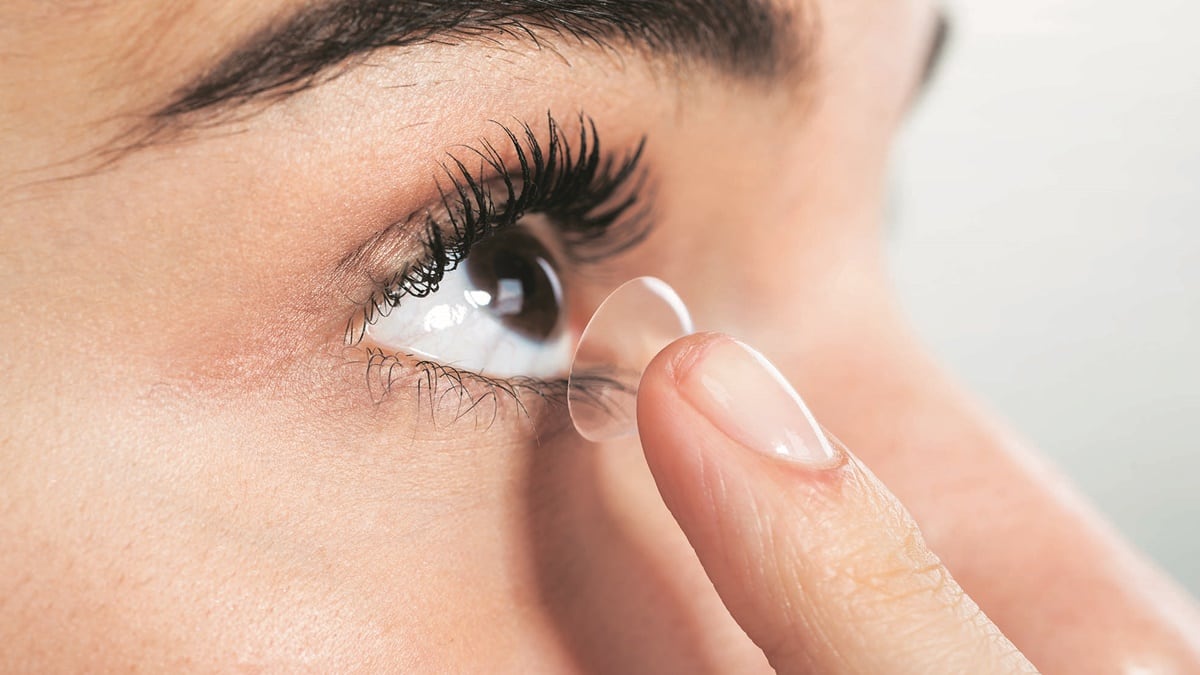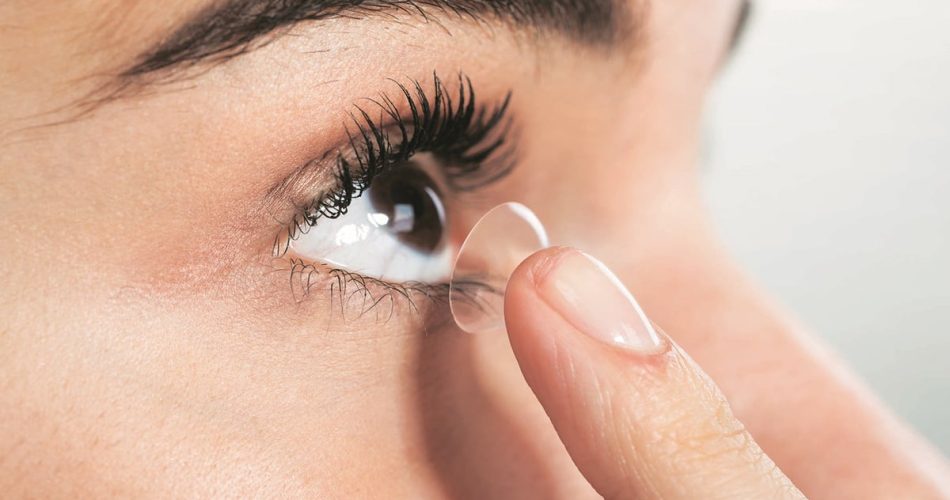

A recent study conducted in the US has raised concerns about the safety of contact lenses. The research found high levels of organic fluorine, which is a marker of perfluoroalkoxy alkanes (PFAS) or ‘forever chemicals’, in 18 popular types of contact lenses.
PFAS are a group of chemicals that are used in various consumer products to make them resistant to water, stains, and heat. However, these chemicals do not naturally break down and have been linked to serious health issues such as cancer, foetal complications, liver disease, kidney disease, autoimmune disorders, and more.
In a separate incident, a TikToker named Doug shared his experience of wearing the same pair of contact lenses continuously for three years. He developed permanent astigmatism and experienced ‘build up’ behind his eyelids as a result. Although Doug eventually recovered after a year of wearing glasses exclusively, this incident has once again brought attention to the potential risks associated with contact lenses.
While contact lenses have been a game-changer for many people, allowing them to enjoy better vision without glasses, there are certain concerns and conditions that users need to be aware of. According to Dr Deepali Garg Mathur, an ophthalmology expert, some common problems associated with contact lens use include red eyes due to irritation or dryness. Contact lenses tend to absorb tears, leading to a dry environment that increases the risk of infection. Prolonged use of contact lenses can also cause issues such as papules in the upper lid, giant papillary conjunctivitis, eye ulcers, and corneal vascularisation.
Sleeping with contact lenses has also been found to be potentially harmful. Reports suggest that wearing lenses overnight significantly increases the risk of eye infections, which can result in permanent corneal damage and vision loss. Dr Saurabh Varshney, a senior consultant in ophthalmology, explains that contact lenses hinder the natural defence mechanisms of the eyes, as they prevent tears from flushing out microbes. Additionally, wearing lenses for extended periods reduces corneal oxygenation, which can damage the cornea’s surface and hinder cell regeneration.
Considering the potential risks associated with contact lenses, some people may wonder if LASIK surgery can be a viable alternative. Dr Priyanka Singh, an eye surgeon, suggests that LASIK can be an effective solution for those who want to reduce their dependence on glasses or contact lenses. While there may be some complications associated with LASIK, such as dry eyes, these issues usually improve within a few months.
It is important to note that most contact lens users tend to misuse or neglect proper care for their lenses, which can increase the risks involved. Dr Mathur advises that those who are not careful with their contact lenses may consider LASIK surgery as an alternative. However, for those who can adhere to the recommended guidelines for contact lens use, they can still be a viable option.
In addition to proper contact lens care and considering alternatives like LASIK surgery, maintaining good eye health is crucial. Experts recommend eating a healthy diet rich in nutrients like omega-3 fatty acids, lutein, zinc, and vitamins C and E to promote good eye health. Quitting smoking is also important, as it can increase the risk of various eye conditions.
Other tips for maintaining good eye health include wearing sunglasses to protect against excessive UV exposure, using safety eyewear when working with dangerous chemicals, following the 20:20:20 rule (looking away from the computer screen every 20 minutes), and regularly visiting an eye doctor.
For contact lens users, it is essential to follow a checklist of good practices, such as washing hands before handling lenses, cleaning lenses after removal, using recommended solutions for cleaning and storing lenses, and regularly cleaning the lens storage case. It is also important to seek immediate medical attention if any unusual symptoms or discomfort occur.
Overall, while contact lenses offer convenience and improved vision for many people, it is crucial to prioritize eye health and take necessary precautions to minimize the potential risks associated with their use.

